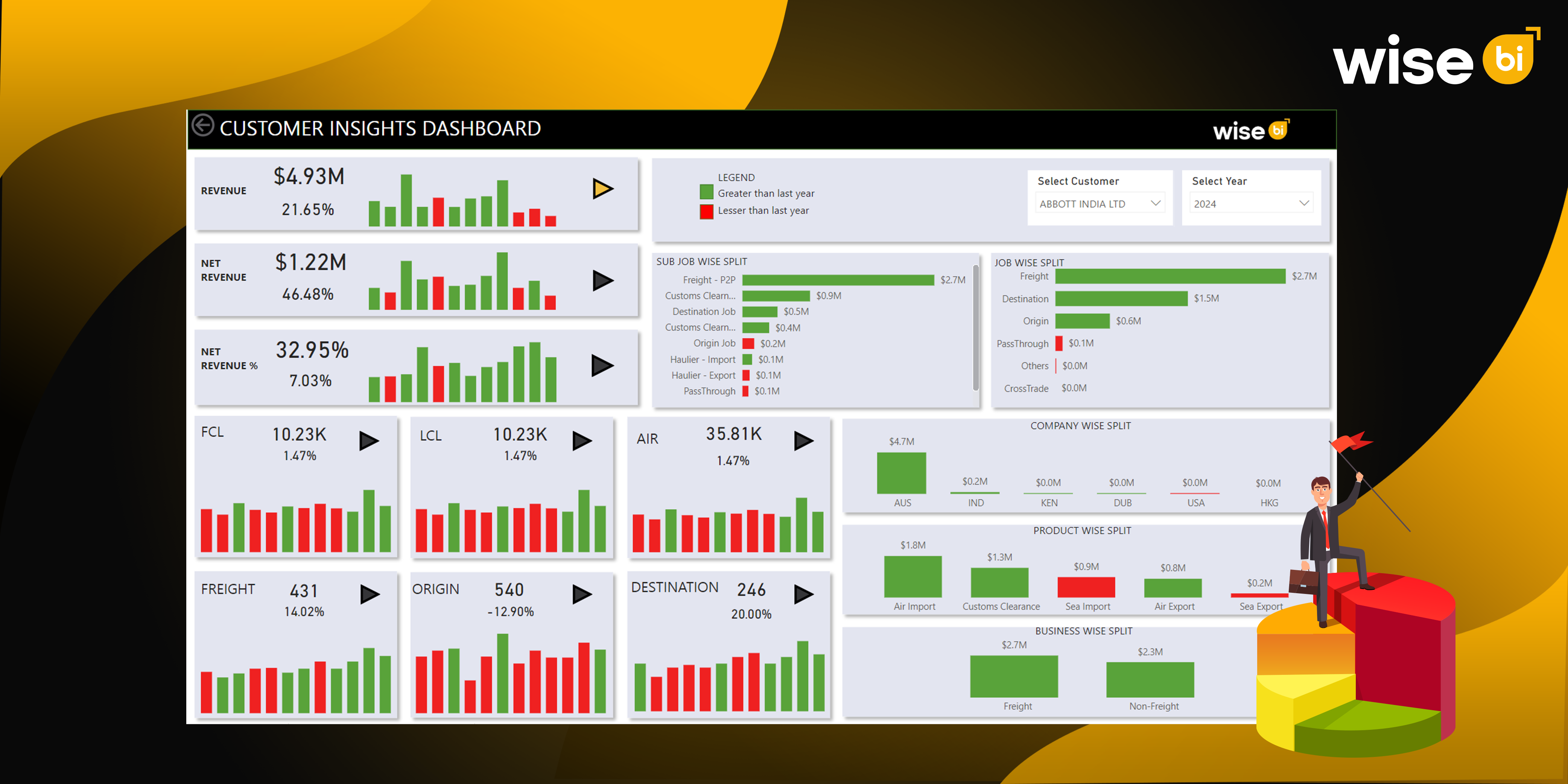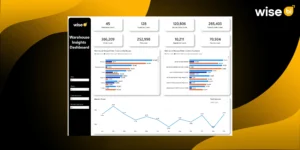Making well-informed judgments might mean the difference between success and stagnation in the quick-paced, data-driven world of modern business. This is where business intelligence (BI) comes into play. BI isn’t just a fancy term here; it’s a vital tool that helps businesses remain ahead of the curve and experience sustained growth by empowering them to transform raw data into actionable insights. In logistics BI is used to improve supply chain visibility and efficiency. We’ll explore BI’s vital function in today’s business environment and why it’s a necessary component of success in this blog.
Business Intelligence (BI): Dispelling Myths
To start, let us deconstruct BI. The process of collecting, evaluating, and converting data into insightful knowledge that informs strategic decision-making is fundamental to business intelligence (BI). It includes a variety of tools and methods that assist businesses in accessing and interpreting their data in order to streamline processes, increase income, and gain a competitive advantage.
why BI is not just a luxury but a necessity in the business world
Making Well-Informed Decisions
BI’s capacity to give decision-makers access to timely, accurate, and thorough data is one of the main reasons it’s crucial for company success. Having the most recent data is crucial in a world where markets are always changing and consumer behavior is always changing. BI makes sure that you don’t base important decisions on out-of-date or insufficient data.
Imagine having access to real-time sales data, consumer input, and market trends to inform prompt decisions on new product launches, marketing campaigns, and supply chain optimizations. This is made possible by BI, which gives you the flexibility to quickly adjust to changing conditions.
Developed Knowledge of the Client
Any successful firm starts with having a thorough understanding of its clients. BI gives you broad insight into the needs, preferences, and behaviors of your customers. You may improve customer happiness and loyalty by customizing your products and services to match their expectations through the recording of client interactions and data analysis.
For instance, BI can be used to determine which products are more well-liked by particular clientele groups, which can help you with inventory control and marketing tactics. Additionally, BI may be used to identify new trends or potential problem areas for your consumers, giving you the opportunity to take proactive measures to resolve problems and maintain your competitive edge.
Optimized Effectiveness of Operations
Big Information (BI) encompasses more than simply consumer awareness; it also involves process optimization within the company. It is possible to find bottlenecks, improve procedures, and cut expenses by examining your operations. To quickly implement corrective action, BI, for instance, can assist you in identifying the supply chain segments where delays occur.
Envision having the ability to pinpoint the segments of your manufacturing procedure that require the greatest amount of time or the areas where assets are not being fully utilized. You can make focused changes based on this knowledge, which can boost productivity and reduce expenses.
Competitive Advantage
Possessing a competitive advantage can make the difference between surviving and prospering in a market that is extremely competitive. By assisting you in identifying market opportunities and risks, business intelligence (BI) makes you stand out. Through the examination of consumer behavior and market trends, you may pinpoint underdeveloped niches and customize your offerings to close those gaps.
BI also gives you the ability to follow the actions of your rivals and predict their tactics. To assist you in making strategic decisions of your own, you can keep an eye on things like price adjustments, the introduction of new products, and client feedback regarding your rivals.
Data-Backed Marketing
Data is the lifeblood of successful advertising efforts in the day and age of digital marketing. BI gives you the instruments to evaluate the success of your marketing campaigns. It enables you to monitor the effectiveness of many marketing platforms, including web advertisements, email campaigns, and social media.
You can more efficiently manage your budget by using business intelligence (BI) to calculate the return on investment (ROI) of your marketing initiatives. By using a data-driven strategy, you can save time and money by avoiding investing resources in initiatives that don’t produce significant outcomes.
The Path to BI Implementation
Now that we’ve established why BI is essential for business success, let’s briefly explore the steps to implement BI effectively:
Define Your Objectives
Start by clearly defining your business objectives and what you aim to achieve with BI. Whether it’s improving sales, enhancing customer satisfaction, or streamlining operations, having a clear vision is crucial.
Choose the Right BI Tools
Select BI tools that align with your goals and the scale of your organization. There are various BI solutions available, from simple data visualization tools to comprehensive BI platforms. Select those who can meet your unique requirements.
Data Collection and Integration
Gather relevant data from various sources within your organization, including customer data, sales data, and operational data. Ensure that your BI tools can integrate and analyze this data effectively.
Data Analysis and Visualization
Use your BI tools to analyze and visualize the data, turning it into meaningful insights. Dashboards, reports, and interactive charts can help you understand the data more intuitively.
Training and Adoption
Train your team to use BI tools effectively. Ensure that everyone understands how to choose the right BI solutions insights generated by the BI system.
Continuous Improvement
BI is not a one-time endeavor but an ongoing process. Regularly review your BI strategy and adapt it as your business evolves.
Conclusion
Business Intelligence (BI) is a requirement in the current data-driven environment, not an extravagance. It offers the basis for well-informed decision-making, boosts operational effectiveness, deepens consumer understanding, gives you a competitive advantage, and permits data-driven marketing. The 21st-century company success formula revolves around the capacity to convert unprocessed data into meaningful and practical insights.
Therefore, adopt BI as a key element of your strategy if you want to succeed in the rapidly changing business world. It’s your route to data-driven success, not just a tool. You’ll be prepared to take on obstacles, grasp opportunities, and guide your company toward long-term success and growth if you apply BI strategically.




